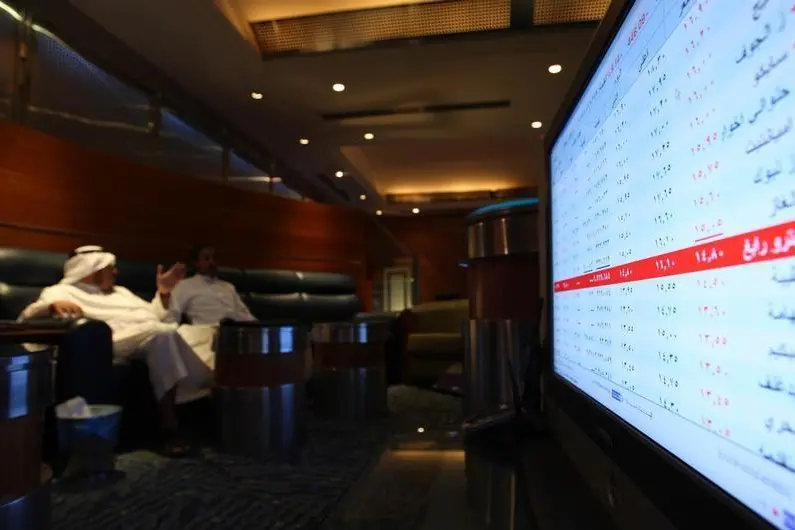PHOTO
GCC equity market index closed 2022 with a decline of 6.4% after demonstrating one of the biggest gains globally last year.
Qatar reported the biggest decline during 2022 with the DSM Index receding 8.1% followed by Saudi Arabia that dropped by 7.1%. This was the first decline in the Saudi index after six consecutive years of gains, said Kamco Invest, a premier investment company based in Kuwait.
On the other hand, Abu Dhabi was once again the best performing market in the GCC with a gain of 20.3% followed by Oman and Bahrain with gains of 17.6% and 5.5%, respectively.
Bahrain Bourse All Share Index
The Bahrain Bourse All Share Index witnessed its second consecutive yearly growth registering a 5.5% rise in 2022 that came after a healthy growth of 20.6% in 2021. The index wrapped the year at 1,895.27 points ranking third in the GCC in terms of yearly returns during 2022.
During the year, the benchmark reached a 14-year high level during March-2022 at 2,122.51 points but consistent declines during Q2-2022 pushed the index down to a yearly low of 1,806.3 points at the end of June-2022.
Q3-2022 showed gains but the last quarter was largely subdued only to see gains towards the end of the year. Sectoral performance was mixed between gainers and decliners. Three out of the seven indices of the Bourse registered gains during the year as compared to four decliners.
Materials sector
The Materials Sector, which has only one constituent company (Aluminium Bahrain), recorded the biggest yearly growth in the Bourse during the year registering 36.2% yearly increase to close the year at 5,007.66 points. ALBA’s share price jump underlined the company’s robust financial performance during the year.
Markets in the region remained volatile during the year and gains made during the first four months of the year were more than offset by declines for most of the months thereafter.
Oil market also influenced markets in the region while additional volatility came from volatile global financial markets. The Russia-Ukraine war and its impact on global supply chain, especially for commodities, and the strict lockdowns in China affected technology and components supply chains during the year.
Global inflation
The trend in global inflation and the steps taken by global central banks with unprecedented pace of rate hikes also affected markets. This was worsened by sanctions on Russia that came into effect during December-2022.
Global equity markets also had an uneventful year with almost all prominent markets recording declines during the year. GCC equity markets once again outperformed their global peers during 2022 by posting a smaller decline during the year a compared to double digit declines for most major global markets. The MSCI GCC Index declined by 6.4% during the year after posting one of the biggest gains globally during 2021. The trend in the index showed consistent gains during Q1-2022 and reaching a peak during the second week of April-2022.
Thereafter, the index largely showed a declining trend for the rest of the year. The trend in the GCC index also almost replicated the trend in oil prices with the Brent trending south since June-2022.
The performance of individual markets in the GCC were mixed in 2022. Abu Dhabi was once again the best performing market in the GCC with a gain of 20.3% followed by Oman, also with a double digit gain of 17.6% and Bahrain with a gain of 5.5%. On the other hand, Qatar’s DSM index was the biggest decliner in the GCC with a drop of 8.1% followed by 7.1% decline in Saudi Arabia’s TASI. The decline in Qatar reflected double-digit decline in Insurance, Banks & Financial and Real Estate indices that were partially offset by gains in Telecom and Transport indices. In Saudi Arabia, merely three out of the 21 sectoral indices witnessed gains while large-cap sectors like Materials and Banks posted declines of 14.4% and 5.6%, respectively.
Sector performance
The GCC sector performance chart showed gains only for three sectors while ten out of the remaining sectors showed double digit declines. The Healthcare index topped yearly performance with a return of 21.2% followed by Utilities and Capital Goods indices with gains of 9.9% and 2.1%, respectively. On the decliner’s side, the Pharma & Biotech index showed the biggest decline during the year at 43.7% followed by Consumer Durables & Apparels and Diversified Financials index with double digit declines of 32.2% and 21.9%, respectively.
Trading activity during the year showed a uniform trend of higher trades in large cap stocks that resulted in a decline in volume traded but value traded showed strong growth in most markets. Aggregate value traded reached $686.7 billion during the year vs. $790.0 billion in 2021 while volume traded reached 261.4 billion shares during the year as compared to 309.0 billion shares in 2021. Saudi Arabia and Bahrain were the only markets that reported a decline in value traded while the rest of the markets showed healthy growth during the year.-- TradeArabia News Service
Copyright 2022 Al Hilal Publishing and Marketing Group Provided by SyndiGate Media Inc. (Syndigate.info).




















